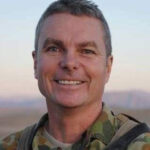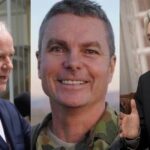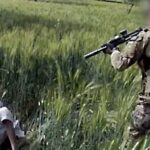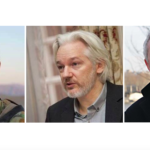Controlling the Discussion: Peace Campaigner Jacob Grech on the Brereton Report
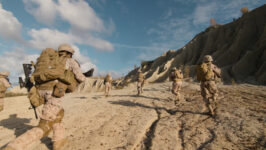
The recently released Brereton report details 39 alleged murders conducted by Australian SAS troops in Afghanistan.
The document also goes to great lengths to ensure the reader is well aware that no one knew about these war crimes above the level of patrol commander.
Patrol commanders are either corporals or sergeants. So, this assertion means that no one higher up than the ADF personnel on the ground were privy to troops breaking the Laws of Armed Conflict.
Indeed, one of the key findings set out in the inquiry document is: “The criminal behaviour described in this report was conceived, committed, continued, and concealed at patrol commander level, and it is overwhelmingly at that level that responsibility resides”.
The Brereton report also contains a War Crimes in Australian History chapter, which takes the reader through the alleged and verified breaches of international humanitarian law that our troops have partaken in during past conflicts.
If the question arises as to why the government and the ADF have provided this handy history of atrocities, well, the answer is found as one of the key themes outlined at the chapter’s end: that there’s evidence of troops concealing war crimes from higher ups since the 1918 Surafend incident.
Drop the charges
Meanwhile, former ADF lawyer David McBride is still facing five national security-related charges for leaking information to the press that basically exposed the same atrocities happening in Afghanistan as does the government-commissioned Brereton report.
McBride served two tours of duty as a military lawyer: one in 2011, the other in 2013. He became discouraged with what he witnessed, and he went on to try and alert the ADF to these issues, however he was repeatedly knocked back and eventually exhausted all avenues.
McBride subsequently went to the ABC. The classified information he leaked contained the details of ten alleged unlawful killings, and it went on to form the basis of the 2017 The Afghan Files report.
For blowing the whistle in a manner that helped provoke the establishment of the Brereton inquiry, the lawyer is now facing life imprisonment.
For the cause of peace
Long-term peace campaigner Jacob Grech doesn’t buy the party line. He posits that the Brereton report isn’t an attempt to reveal the crimes of soldiers, but rather it’s to cover up any responsibility that might apply moving up the chain of command.
Grech has been speaking out against the war in Afghanistan since it began at the turn of the century. And these days, the anti-war campaigner hosts the Friday Night Rave on Melbourne’s 3CR Community Radio, providing a weekly roundup of current affairs.
Sydney Criminal Lawyers spoke to Jacob Grech about the reasons why the Brereton report has been produced, the justifications Australia has had for entering the war in Afghanistan, and why he asserts that a War Powers Act needs to be passed at the federal level.
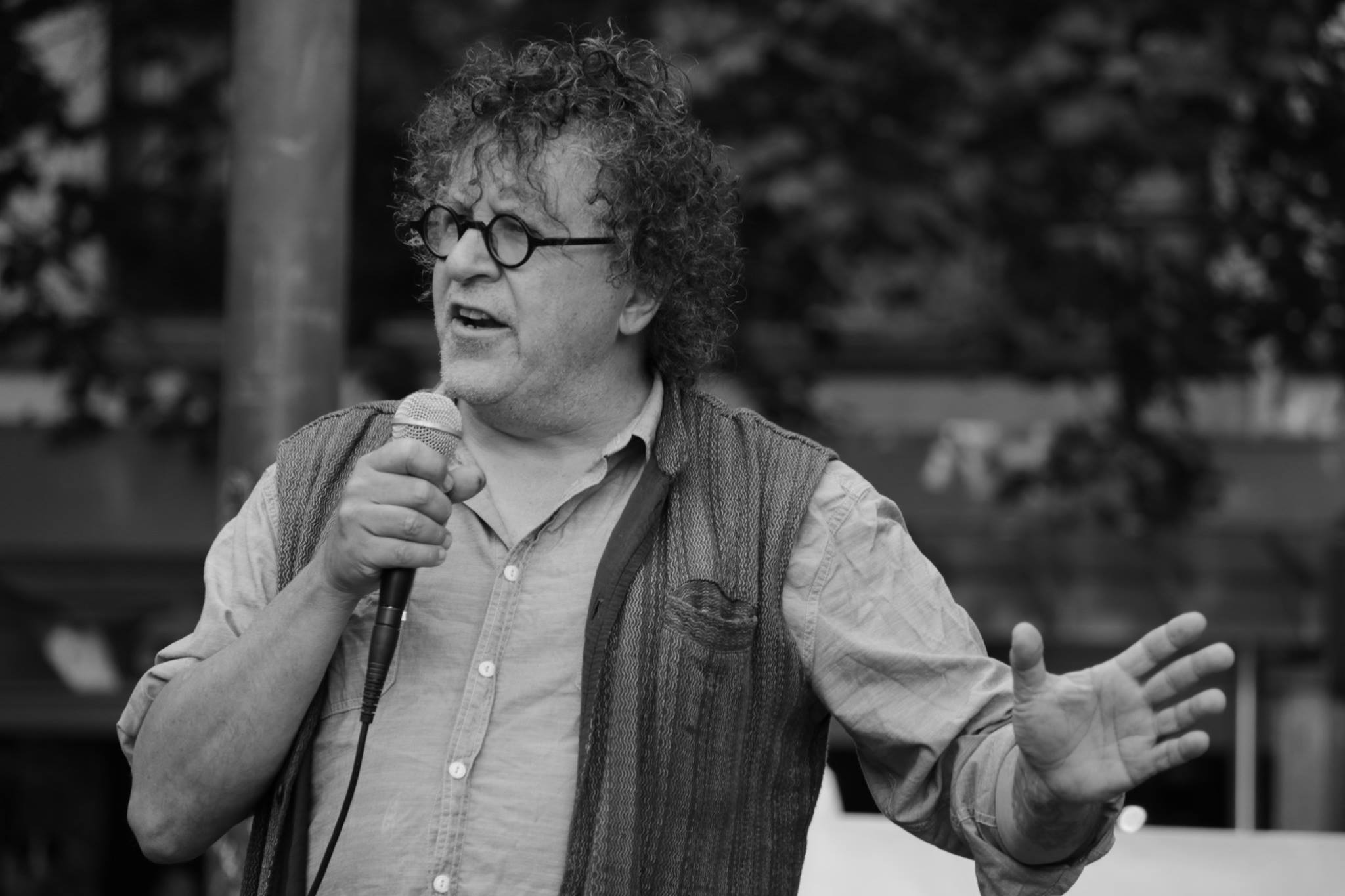
Firstly, at a recent Socialist Alliance online forum, you said that while the 39 alleged murders perpetrated by SAS troops in Afghanistan were “gruesome”, they really come as no surprise, rather the real surprise is that any of it came to light.
Jacob, can you elaborate on this?
I guess the first thing to look at is the overall concept of war. War is to gain resources or to stop an enemy gaining resources or to stop an enemy doing things that we consider are wrong.
It’s not something in modern society that we allegedly get into too easily. But when we do, our society gives the military the right to act in ways and commit what would otherwise be regarded as crimes.
So, we know about the atrocities of war. And the important thing is to not see what’s happened in Afghanistan as different to what happens in war generally and throughout history.
War is violent by nature. It is often seen as the trolley problem: killing one person or committing some violence for the greater good to save other lives.
That’s the same justification we’ve seen for the US torture programs and for a host of other abrogations of human rights.
That’s whether we’re talking about on the streets, at home through the rights that are taken from us day by day, to doing what they do in places like Somalia, Iraq or indeed, Afghanistan.
The SAS are the Australian military’s elite soldiers. They’re modelled on the British SAS. And they share the same motto, Who Dares Wins.
That says a lot. The whole thing of “who dares”. It’s putting it out there that we are the people who dare to do – dare what? – dare to do the unspeakable.
To look at the headspace of that, the current reality TV show about the SAS gives us a bit of a glimpse. Not only the physical training but the mental resilience to extremes.
There have been rumours about members of the SAS going beyond what we normally consider acceptable.
But these rumours are met with: they do what they have to do, we are glad that we do not know about it, and we’re also glad we’ve got these “superheros” doing what needs to be done to keep us safe.
For example, SAS troops are accused of breaking the necks of two wounded men during the INTERFET deployment in East Timor in 1999, because there was no room for them on an evacuation helicopter.
In Vietnam, they were accused of killing two Vietnamese prisoners. The killings were initially attributed to the New Zealand military but later, were found to be Australian. And while we don’t know whether they were SAS for sure, the special forces were active in the area at the time.
The fact that the SAS do the unspeakable really comes as no surprise. So, there’s that side of it.
But what is surprising is that this is now coming into the open, whereas previous allegations have been disregarded or at best perfunctorily investigated and found in favour of the soldiers every time.
With the culture of whistleblowing that’s existent in the world today, the military have obviously found it can’t keep sweeping these allegations under the carpet, and word was getting out in inner circles and then more recently, through mainstream news media.
So, the surprise is that they got out at all to me. Once the Australian military and the government found they could no longer hide these things, their next option was to try to control the discussion around it.
That, I reckon, is the whole reason for the Brereton report.
Former ADF lawyer David McBride continues to face multiple national security-related charges over blowing the whistle to the ABC about the same illegal actions of Australian troops in Afghanistan.
What are your thoughts on the government conducting this investigation and releasing this report, while at the same time, it continues to pursue charges against McBride for in essence doing what it eventually sought to do?
That’s an apparent contradiction, but it’s not really. The government did not seek to uncover the war crimes. It only acknowledged them after David McBride released things to the media.
While they now have to say they’re dealing with it, they still need to send a very strong message to other potential whistleblowers.
Imagine for a moment if the government came out and dropped the charges against David and thanked him for bringing these problems up – that should have been the government’s reaction.
But you need to remember that David wasn’t a bleeding-heart liberal. He was part of the system for a fair while. David believed in what he was doing in the military. He was proud of his military service, but he was traumatised by what he saw.
When he decided to expose the truth, he first tried to do it internally – through the internal mechanisms but was given short shrift.
The people shouldn’t be fooled into thinking the Australian government welcomes the opportunity to address these allegations. They’re only doing it because they can no longer hide and shy away from them.
So, if the Australian government dropped the charges, they would encourage others, like McBride, to come forward.
You would have people coming forward saying, “I know about this.” “If the government really wants to know about it, maybe I should tell them about what happened in Somalia.”
But they don’t want to encourage that. They want to be seen to be dealing with it at the same time as suppressing any further revelations.
When reading through the report one is taken by the amount of effort and space given to putting forth the argument that there was no knowledge about these illegal actions above the level of patrol commander.
What do you think about this aspect of the report?
That’s the whole reason for the report. It’s the cover up. In much the same way as when corrupt politicians and violent abusive police are exposed, they’re without fail painted as bad apples.
The whole reason that governments need to be seen to be acting on these things is so they can be explained away as bad apples – as aberrations – rather than the norm.
Whether we’re talking about the copper Zachary Rolfe, who killed Kumanjayi Walker in Yuendumu, or whether we’re talking Daryl Maguire using his position and relationship with the premier to line his own pockets, every time that incidents of corruption or brutality are exposed they need to be shown as an aberration.
In so doing, they don’t only show they’re dealing with it, but they can almost twist it into another example that proves the system is working well because when these things happen we catch the people and we deal with them.
Whereas everybody has some understanding that this is endemic to public life.
The other point to why they’re trying to deflect attention away from the superior command is the convention in international law known as the Yamashita Standard.
It comes from the case of general Yamashita, who was in the Japanese Imperial Army during World War Two. He led the attack on Singapore and he later led the occupation of the Philippines, which is more germane to the Yamashita Standard.
After the war at his trial, it wasn’t even attempted to be shown that he knew about any of the well documented atrocities that his troops rampaged through the Philippines.
It was ruled at his trial that even if he didn’t know, the very fact that he didn’t make any attempts to discover what his troops were doing – or stop any excesses – as the highest ranking officer in the field, he was reasonable. And he was subsequently hanged as a war criminal.
That’s the Yamashita Standard, and it’s a recognised convention of international law.
Now, the whole reason for the Brereton report painting it as a few bad apples is so the government and the Australian military can be seen to be dealing with the allegations that have come to light.
Ironically, the very fact that they’ve produced the Brereton report, and they take some measures to curb the actions of the SAS, those actions will then exonerate them from being responsible.
So, while the report looks like it is uncovering war crimes, it is actually covering up guilt?
It’s covering up the guilt of the higher-ranking commands, in my opinion.
The war in Afghanistan saw our nation’s longest engagement in a single conflict. You were campaigning against it from the very beginning.
While many Australians were aware we entered the war, the knowledge that we continued to be engaged in it simply faded from public awareness.
Why were we there for so long? What were the justifications?
Well, we are still there. It’s not “were we there”. It’s why are we still there after 19 years.
Our occupation in Afghanistan has been constant, but the stated reasons for our occupation have been changing.
The reasons have involved us being on this person’s side supporting that person, helping to build the Afghan military, or helping stop atrocities against women. There are all kinds of justifications.
This is less about Afghanistan and more about the role of war since the later part of the 20th century. The West is in crisis. That’s not denied even by its biggest proponents.
As a part of this crisis, we’ve inextricably moved to a war-based economy. This is Marxism 101. The West –the US and its allies – has no real incentive to win in the old-fashioned sense.
Once a war is won, the occupying power becomes responsible for the governance of the country. At the same time, the largest industry in the world – the military – then becomes redundant.
So, we’re not in the war to win. We are in the war to be in the war. And in so doing, maintain the level of instability in the region that can best be exploited by disaster capitalism.
Arundhati Roy summed it up in 2004, when she won the Sydney Peace Prize, in saying, There was a time when weapons were manufactured in order to fight wars. Now wars are manufactured in order to make weapons.
It’s part of the ongoing war we’ve seen since the 1990s. And why it’s faded from the memories of the Australian people is they’ve grown used to it. They’ve grown immune.
In 2003, we had close to a million people on the streets calling on our government to stay out of it. But we weren’t taken notice of, so people said, “What’s the use in trying?”
Then there’s the role of the military in our national psyche since the Howard culture wars, which saw Anzac Day become our de facto national day of pride, the renaming of wars – the Battle of the Coral Sea became the Battle for Australia – the promotion of military leaders into parliament and industry and the increasing militarisation of state police forces.
I’m sure Sydney Criminal Lawyers is well aware that the police we see on the streets today look more like the military than the police of 20 years ago.
So, while the average Australian hasn’t been directly affected by war, it’s become an everyday fact in Australian lives: the acceptance we are involved in wars over there and elsewhere.
Of course, then there’s the ongoing media discussion about possible war with China, and most people think it’s just a bit too much to get their heads around.
I believe our involvement in Afghanistan today is in terms of training?
Well, most of our involvement in Vietnam was in training.
There are troops there, and they’re said to be training, and the best way to train them is to go out into the battlefield and fight with them.
And lastly, Jacob, the government has gone to all this expense to officially expose what the nation was already privy to.
The Australian federal police are now considering the prosecutions of individual soldiers who allegedly conducted the crimes.
But besides the prosecutions of certain individuals, do you think this report is going to have a broader impact going into the future? And further, what sort of changes should it result in?
Whether it has a broad impact going into the future largely depends on the reaction of the Australian community and of the media, by and large, as well as political parties.
There have been calls for the perpetrators to be brought before the justice system, and they should.
There is probably an argument for them to be extradited to Afghanistan to face the charges in the jurisdiction where they were committed. That’s what we’d expect after all.
If they weren’t acting on authorities, and the murders weren’t undertaken by orders but people acting on their own behest, then there’s a strong argument that they should be extradited to Afghanistan to face charges over there.
There have also been calls for the SAS to be disbanded, and while I have some sympathy with that, my fear is that much like a phoenix company in the construction industry, all that would happen is our elite soldiers will just come under another name. And the atrocities of war will continue.
One thing that needs to be done and should be followed up as a direct consequence of these atrocities is looking at enacting a War Powers Act.
At the moment, the decision to send Australian troops overseas to war can be made by the prime minister in consultation with his security cabinet, under the terms of the Defence Act.
Changing to a War Powers Act would mean the reasons, the necessity and the timeline of sending Australian troops into another country to perpetrate violence in defence or in support of Australian policy objectives, would be discussed and debated in parliament beforehand and therefore, in the media as well.
The whole thing we’re seeing here – and it’s come about through the actions of whistleblowers – is transparency.
There is another whistleblower who released the Afghan War Logs in 2010. That was Julian Assange, and he famously said, “If wars can be started by lies, peace can be started by truth.”
A change to a War Powers Act, which led to a national discussion on Australia’s role in specific overseas wars, could only lead to a stronger resistance to sending people overseas to start with.


